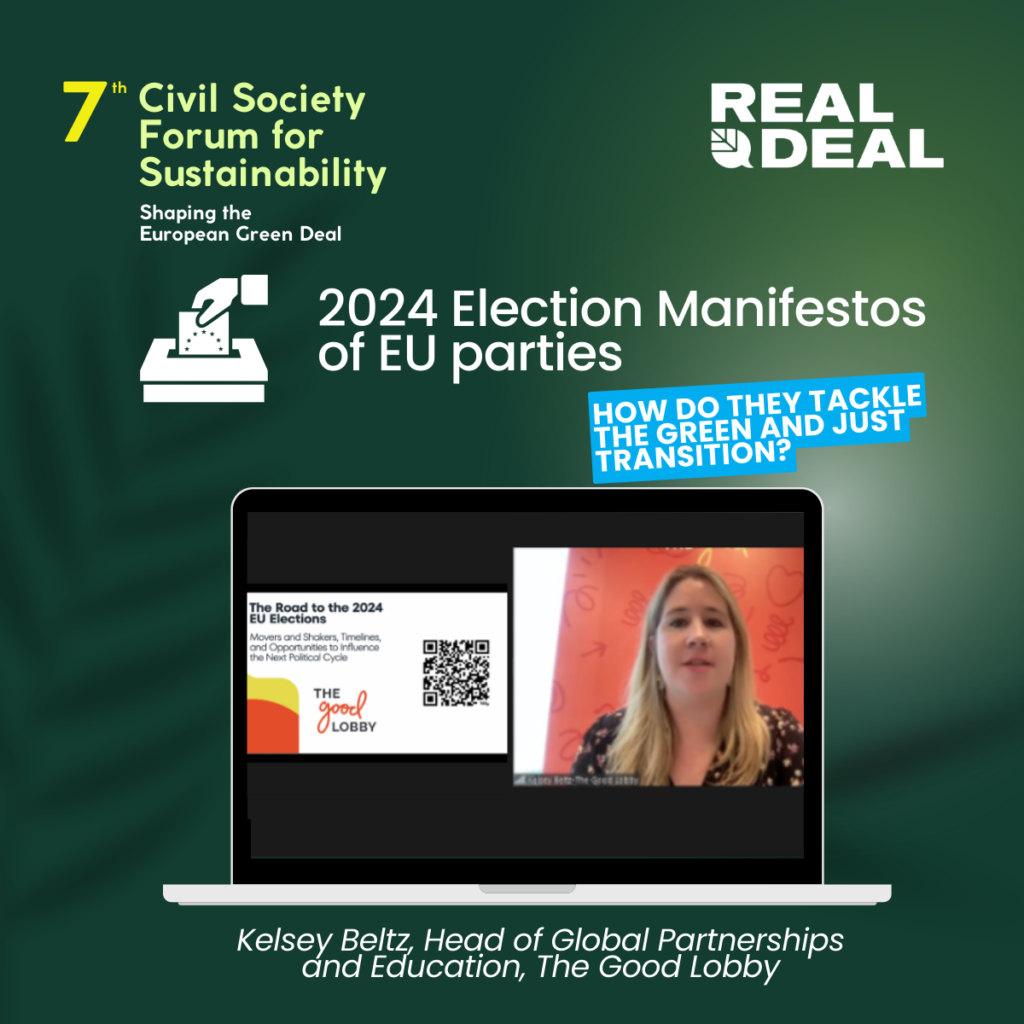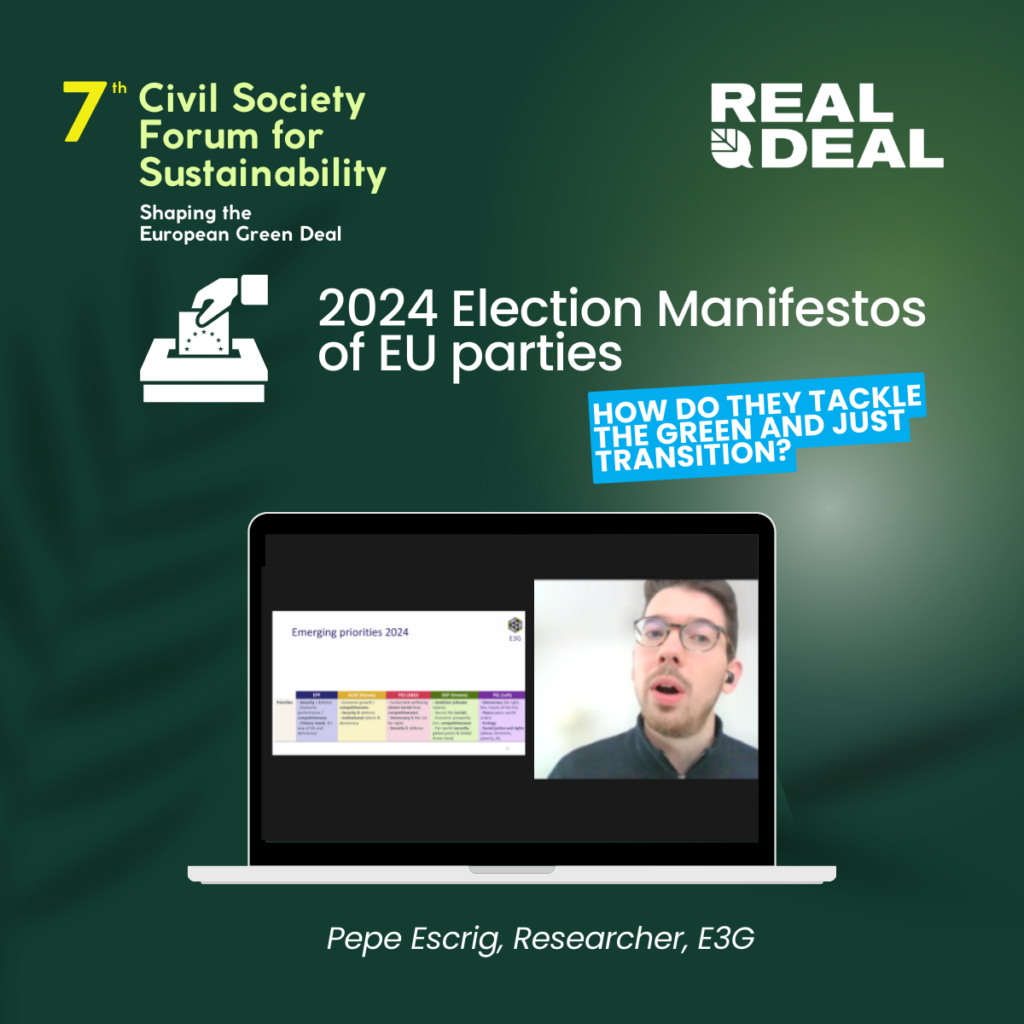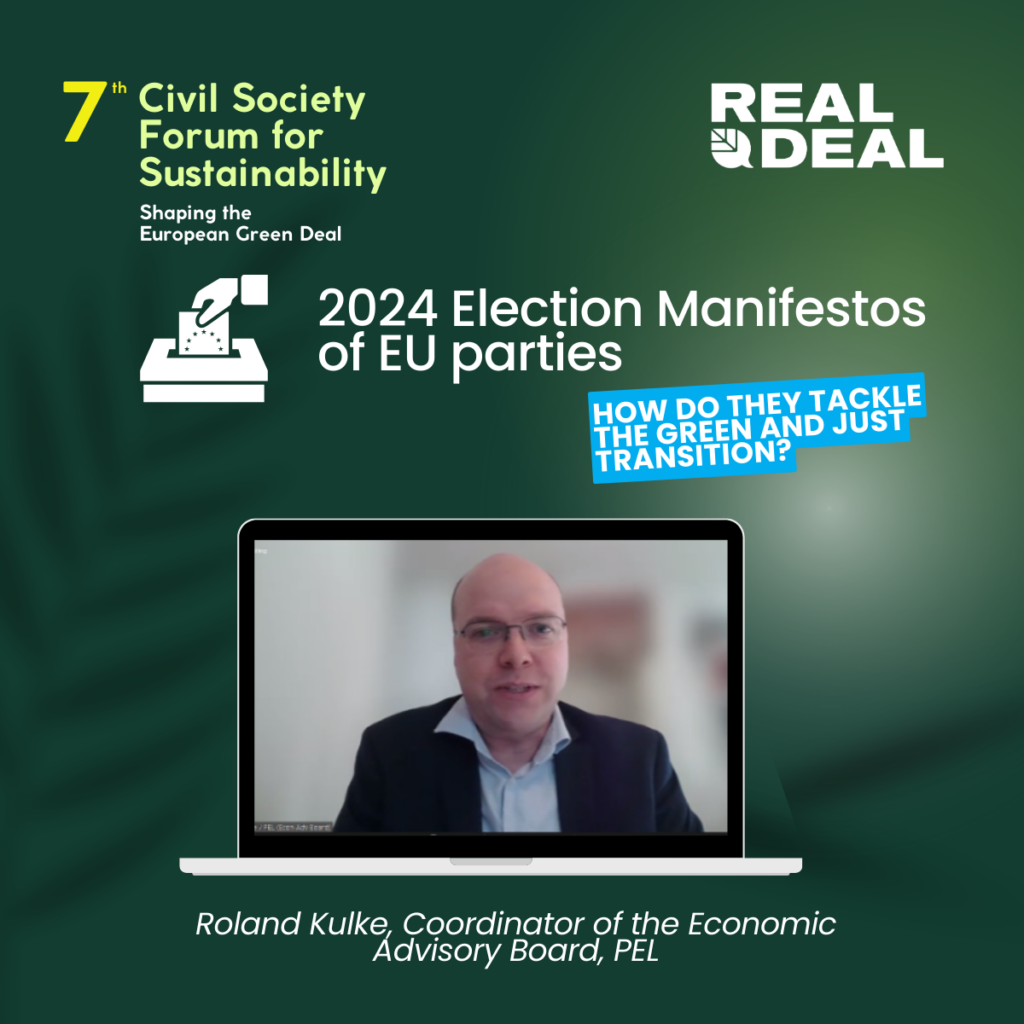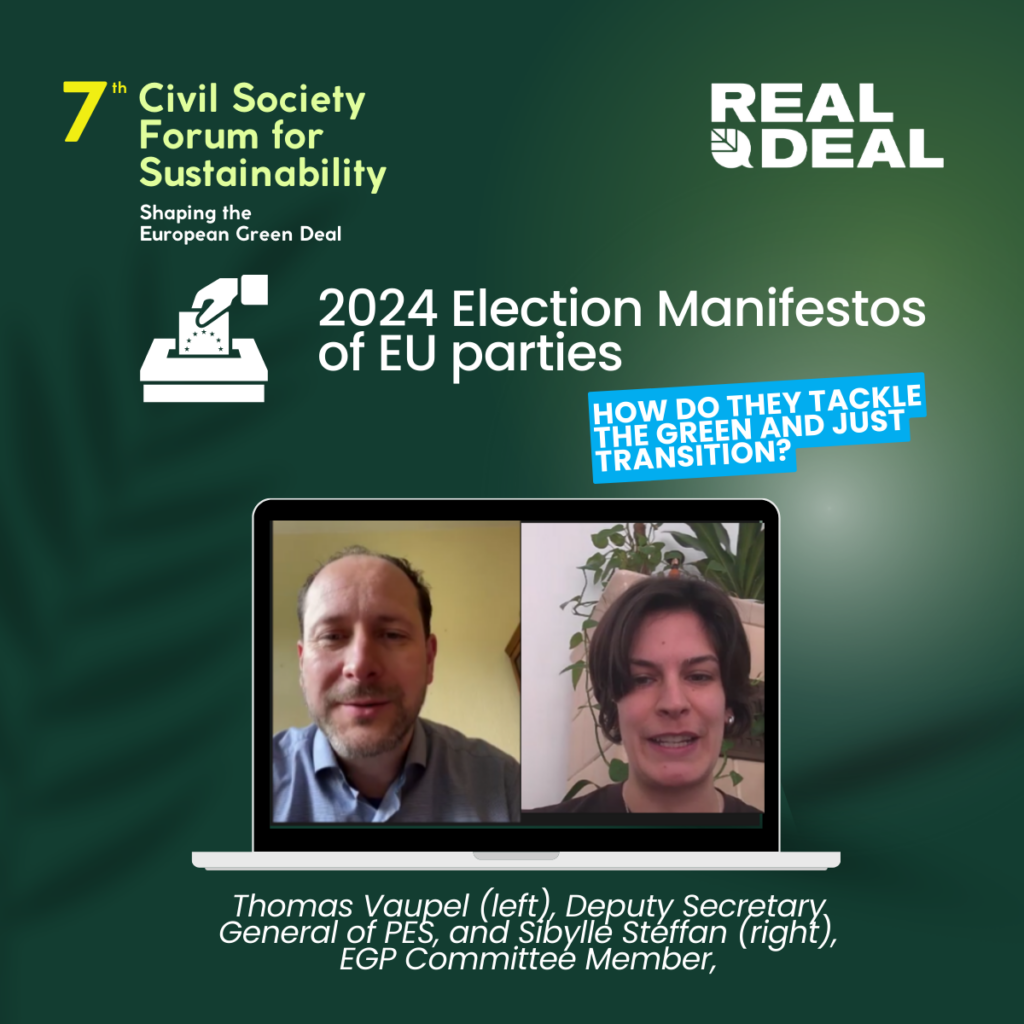7th Civil Society Forum: Civil Society Organisations Assess European Political Group Manifestos for a Sustainable Future
During the seventh edition of REAL DEAL’s Civil Society Forum for Sustainability, representatives from diverse Civil Society Organisations (CSOs) across Europe and beyond came together to critically assess the promises in the political manifestos of 5 European political groups: Party of European Socialists (PES), Party of the European Left (PEL), European Green Party (EGP), Alliance of Liberals and Democrats for Europe (ALDE), and European People’s Party (EPP), a key activity of the Forum, as the EU gets closer to the European Parliament elections, on 9 June.
The Forum’s first day begun with an opening panel hosting representatives from The Good Lobby, E3G, a climate change think tank and the Party of the European Left, setting the stage for participants by discussing the extent to which the manifestos deliver on sustainability commitments and a green and just transition in light of the 2030 Agenda
Kelsey Beltz, Head of Global Partnerships and Education, The Good Lobby, shed light on the critical importance of political manifestos, focusing on why they matter. She highlighted the urgent need for such strategies in our current political landscape.


Pepe Escrig, Researcher, E3G provided information about the process of setting the new EU priorities and valuable insights by comparing the European manifestos from 2019 to 2024 from a climate and energy perspectives, helping participants to understand the shifts in political agendas over time.
Roland Kulke, Coordinator of the Economic Advisory Board, PEL, offered valuable insights to participants to what extent the PES manifesto addresses the crucial topics such as the sustainability commitments of the 2030 Agenda, the importance of a green and just transition.

The opening panel was followed with the assessment of the manifestos where the participants had the opportunity to engage in one of three learning spaces: Social Justice, Good Governance, and Planetary Boundaries, through the lens of progressive SDG targets and indicators. Participants had access to the manifestos on mural boards during the breakout sessions, moderated by the facilitators. These boards served as a platform for input and suggestions, facilitated interactive analysis and discussion. Following the participants assessment, they scored the manifestos according to the specific SDG targets and indicators to indicate how well they are aligned with the SDG goals and priorities. A wide variation was observed in the extent to which the European political parties aim to deliver on the commitments of the 2030 Agenda, with many gaps in implementation remaining.

On the second day of the Forum, Thomas Vaupel, Deputy Secretary General of PES, and Sibylle Steffan, EGP Committee Member, presented their respective party manifestos. They emphasized the importance of considering global issues and creating an enabling environment for people and civil society organizations to participate in processes aimed at achieving a green and just transition for Europe.
Throughout the Forum, participants engaged in discussions with the representatives of the political parties at EU level and continued their discussions in their respective learning spaces by assessing the manifestos. The outcomes of these discussions will be compiled into a policy tool summarising the main findings of the forum, as well as an SDG scorecard on the manifestos
Coming soon: Join us for the next meeting!
The Civil Society Forum meets three times per year and the next forum meetings will take place online on the 11&12 June 2024.
Keep an eye on the SOLIDAR and REAL DEAL websites for updates and further information.


